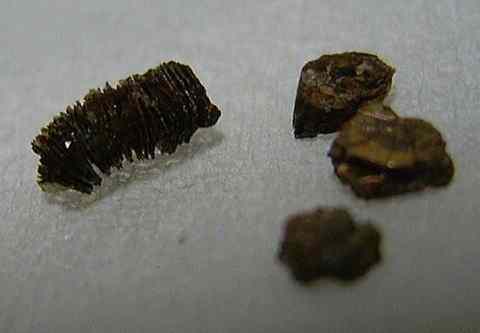Vermiculite
Yamato village, Koshu city, Yamanashi pref., Japan

Middle crystal at right: 5 mm. Vermiculite crystals. The 3 tabular crystals at the right are vermiculite. The left one is a heated vermiculite crystal. Vermiculite moves and stretches like a leech by heating using a frying pan. Vermiculite is formed by replacing K, Fe, and Mg between silicate sheets of biotite with H2O or OH. Vapor water from H2O and OH by heating pushes silicate sheets to expand the crystal like an accordion. As this mineral can keep water and various ions well, Vermiculite is commonly used as gardening sand as it keeps water and other inorganic ions.
Recovered from soil formed by weathering of S-type (Ilmenite-series) granite.
Vermiculite from this location was described in 1904.
Other localities
- Tano (Weathered granite, Tabular)
- Ono (Weathered granite, Tabular)
- Mount Myoken (Serpentinite, Tabular)